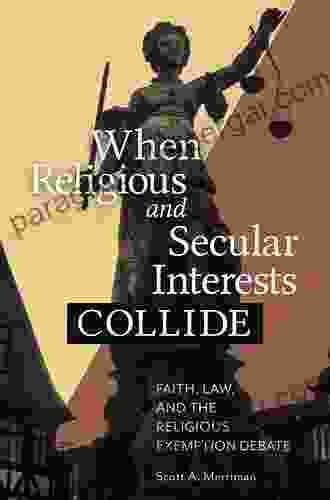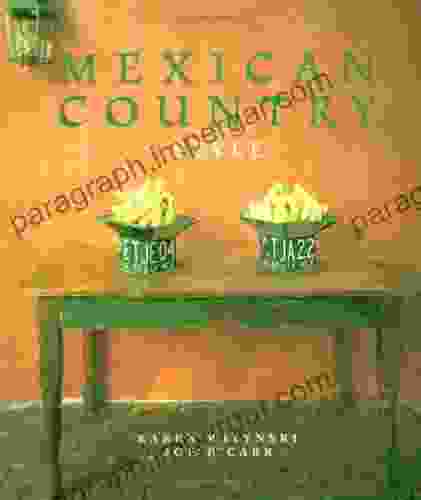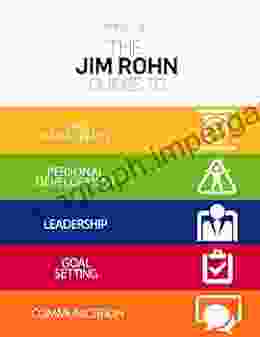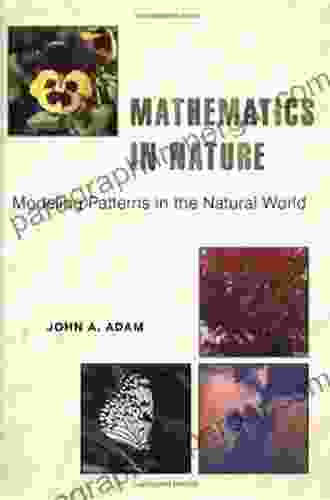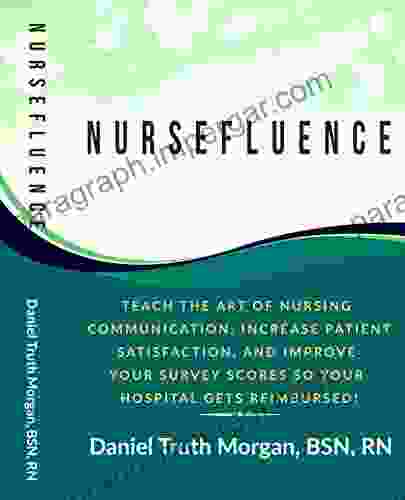Unveiling the Intricacies of Faith, Law, and the Religious Exemption Debate: A Comprehensive Exploration

The relationship between faith, law, and the religious exemption debate is a multifaceted and complex one. In the United States, the First Amendment of the Constitution guarantees freedom of religion, but this right is not absolute. The government can still regulate religious practices when they conflict with compelling government interests, such as public health and safety.
5 out of 5
| Language | : | English |
| File size | : | 1908 KB |
| Text-to-Speech | : | Enabled |
| Screen Reader | : | Supported |
| Enhanced typesetting | : | Enabled |
| Word Wise | : | Enabled |
| Print length | : | 210 pages |
The religious exemption debate often centers around the issue of vaccination. Some people believe that their religious beliefs prohibit them from vaccinating their children. However, the government has a strong interest in protecting public health, and it has therefore required children to be vaccinated for certain diseases.
In recent years, the religious exemption debate has become increasingly heated. This is due in part to the rise of the anti-vaccine movement, which has spread misinformation about the safety of vaccines. As a result, more parents are seeking religious exemptions from vaccination requirements.
The religious exemption debate is a complex one with no easy answers. In this article, we will explore the legal framework that governs religious exemptions, the arguments for and against religious exemptions, and the impact of the religious exemption debate on public health.
The Legal Framework for Religious Exemptions
The First Amendment of the Constitution states that "Congress shall make no law respecting the establishment of religion or prohibiting its free exercise." This means that the government cannot favor or disfavor any particular religion, and it cannot prevent people from practicing their religion freely.
However, the government can still regulate religious practices when they conflict with compelling government interests. This means that the government can require people to vaccinate their children, even if they have religious objections to vaccination.
In 1990, the Supreme Court ruled in the case of Employment Division v. Smith that the government can deny unemployment benefits to people who are fired from their jobs because they use peyote, even if peyote use is part of their religion.
The Court ruled that the government's interest in preventing drug use was more important than the plaintiffs' religious freedom. This decision made it more difficult for people to claim religious exemptions from government laws.
However, in 1993, Congress passed the Religious Freedom Restoration Act (RFRA). RFRA restored the pre-Smith standard for religious exemptions. Under RFRA, the government can only deny a religious exemption if it can show that the exemption would cause a "compelling government interest" and that the government has used the "least restrictive means" possible to achieve that interest.
The Arguments for and Against Religious Exemptions
There are strong arguments both for and against religious exemptions. Those who support religious exemptions argue that they are necessary to protect religious freedom.
They argue that the government should not be able to tell people what they can and cannot believe, and that people should be free to practice their religion without fear of persecution.
Those who oppose religious exemptions argue that they can be used to undermine important public health laws. They argue that the government has a responsibility to protect the public from disease, and that religious exemptions should not be allowed to put people at risk.
They also argue that religious exemptions can be used to discriminate against people who do not have religious objections to vaccination. For example, some parents have used religious exemptions to avoid vaccinating their children, even though their children are not at risk of any health problems from vaccination.
The Impact of the Religious Exemption Debate on Public Health
The religious exemption debate has a significant impact on public health. When people are not vaccinated, they are more likely to get sick and spread disease to others.
This is especially concerning for diseases that can be serious, such as measles and whooping cough. In recent years, there have been several outbreaks of these diseases in the United States, and many of the cases have been linked to unvaccinated people.
The religious exemption debate is a complex one with no easy answers. However, it is important to be aware of the arguments for and against religious exemptions, and to understand the impact that the religious exemption debate has on public health.
The religious exemption debate is a complex and challenging one. There are strong arguments on both sides of the issue, and it is important to weigh the benefits and risks of religious exemptions carefully.
Ultimately, the decision of whether or not to grant a religious exemption is a difficult one. However, it is important to remember that the government has a responsibility to protect the public from disease, and that religious exemptions should not be allowed to put people at risk.
5 out of 5
| Language | : | English |
| File size | : | 1908 KB |
| Text-to-Speech | : | Enabled |
| Screen Reader | : | Supported |
| Enhanced typesetting | : | Enabled |
| Word Wise | : | Enabled |
| Print length | : | 210 pages |
Do you want to contribute by writing guest posts on this blog?
Please contact us and send us a resume of previous articles that you have written.
 Book
Book Novel
Novel Page
Page Chapter
Chapter Text
Text Story
Story Genre
Genre Reader
Reader Library
Library Paperback
Paperback E-book
E-book Magazine
Magazine Newspaper
Newspaper Paragraph
Paragraph Sentence
Sentence Bookmark
Bookmark Shelf
Shelf Glossary
Glossary Bibliography
Bibliography Foreword
Foreword Preface
Preface Synopsis
Synopsis Annotation
Annotation Footnote
Footnote Manuscript
Manuscript Scroll
Scroll Codex
Codex Tome
Tome Bestseller
Bestseller Classics
Classics Library card
Library card Narrative
Narrative Biography
Biography Autobiography
Autobiography Memoir
Memoir Reference
Reference Encyclopedia
Encyclopedia Jill Lepore
Jill Lepore Joachim Hagopian
Joachim Hagopian John Anthony West
John Anthony West Joe Garecht
Joe Garecht Jinfan Zhang
Jinfan Zhang Jennifer Dukes Lee
Jennifer Dukes Lee Jennifer Speake
Jennifer Speake Jim Makowicki
Jim Makowicki Jill Chang
Jill Chang Joanna M Setchell
Joanna M Setchell Jessica Long
Jessica Long Joanna Macy
Joanna Macy Jen Rozenbaum
Jen Rozenbaum Joakim Garff
Joakim Garff Joe P Carr
Joe P Carr Jenn Mckinlay
Jenn Mckinlay Jessica Handler
Jessica Handler Johan Marais
Johan Marais Jeffrey M Berry
Jeffrey M Berry Jerzy Kosinski
Jerzy Kosinski
Light bulbAdvertise smarter! Our strategic ad space ensures maximum exposure. Reserve your spot today!

 William ShakespeareUnlock the Secrets of Beauty and Fashion: A Comprehensive Guide to Enhancing...
William ShakespeareUnlock the Secrets of Beauty and Fashion: A Comprehensive Guide to Enhancing... Bobby HowardFollow ·18.1k
Bobby HowardFollow ·18.1k Pablo NerudaFollow ·8.5k
Pablo NerudaFollow ·8.5k Jan MitchellFollow ·10.1k
Jan MitchellFollow ·10.1k Dwight BlairFollow ·2.2k
Dwight BlairFollow ·2.2k Gabriel Garcia MarquezFollow ·2.4k
Gabriel Garcia MarquezFollow ·2.4k Adam HayesFollow ·6.4k
Adam HayesFollow ·6.4k Heath PowellFollow ·15.9k
Heath PowellFollow ·15.9k George Bernard ShawFollow ·2.9k
George Bernard ShawFollow ·2.9k

 Christian Barnes
Christian BarnesUnleash Your Creativity: Build Interlocking 3D Animal and...
Discover the Art of Paper...
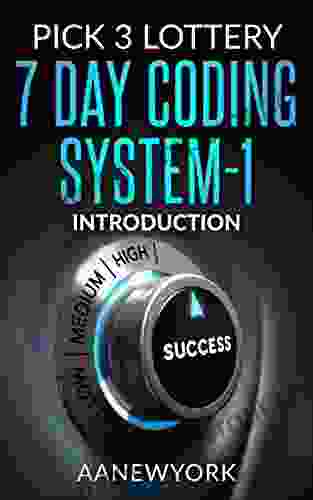
 Terry Bell
Terry BellUnveiling the Secrets of Winning: A Comprehensive Guide...
In the realm of chance and fortune, the...
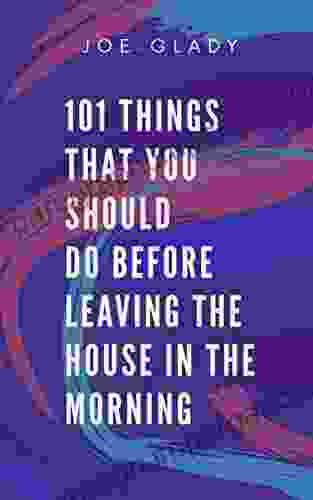
 Albert Camus
Albert Camus101 Things That You Should Do Before Leaving The House In...
Starting your day right is...
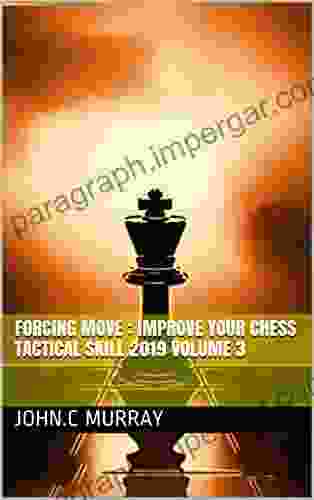
 Anthony Burgess
Anthony BurgessForcing Move 2024 Volume: Unleash Your Inner Grandmaster
Embark on an extraordinary chess...
5 out of 5
| Language | : | English |
| File size | : | 1908 KB |
| Text-to-Speech | : | Enabled |
| Screen Reader | : | Supported |
| Enhanced typesetting | : | Enabled |
| Word Wise | : | Enabled |
| Print length | : | 210 pages |


